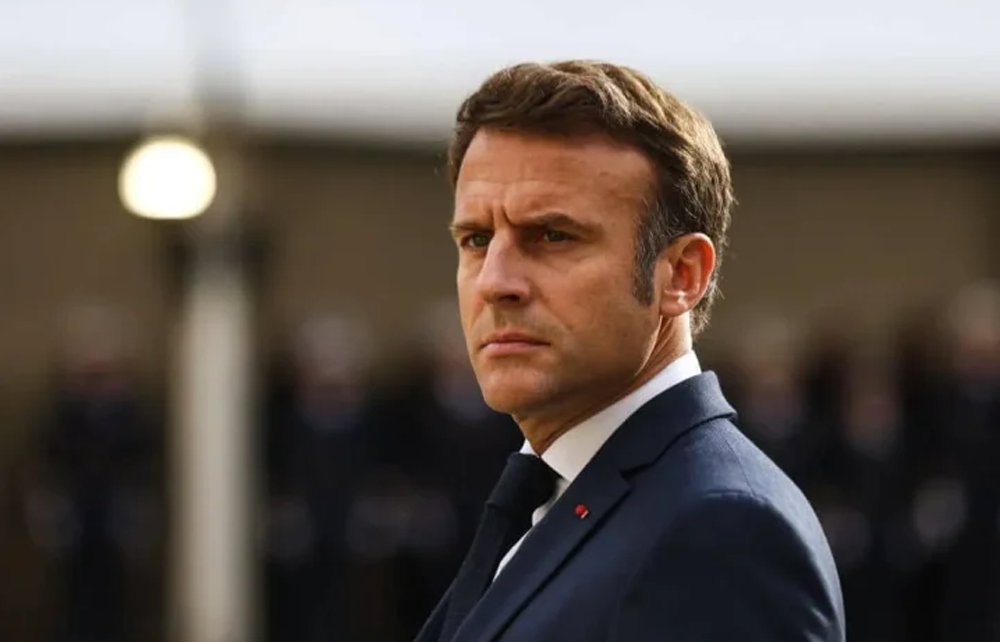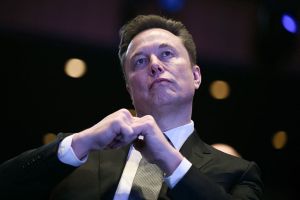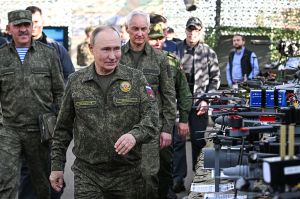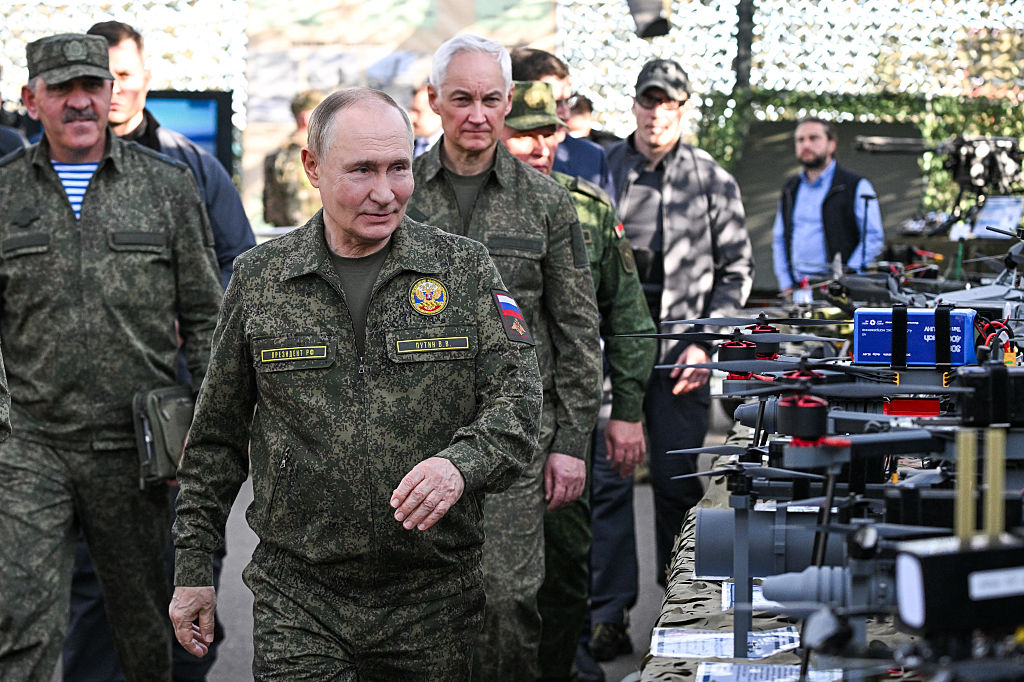There is an irony in Emmanuel Macron’s vision of a sovereign, independent Europe. His latest comments following his trip to China, far from sparking a seismic shift in European strategic thinking, have illustrated just how foolish the French president’s fantasy is. That fantasy would require a unity that the Continent has never seen before — and won’t see anytime soon if the avalanche of criticism over Macron’s comments is any indication.
Macron’s European counterparts were swift to condemn his remarks made in the context of his trip to China. Lithuanian Foreign Minister Gabrielius Landsbergis, one of Europe’s most principled politicians, said, “Instead of requesting assistance we should be projecting our strengths, showing the world that Ukraine, Europe and the US are willing and able to secure the European continent. That is the only signal we should be sending.” Polish Prime Minister Mateusz Morawiecki commented, “European autonomy sounds fancy, doesn’t it? But it means shifting the center of European gravity towards China and severing the ties with the US.” He continued, “I do not quite understand the concept of strategic autonomy if it means de facto shooting into our own knee.” Latvian Foreign Minister Edgars Rinkēvičs hit a similar note: “”We must strengthen transatlantic unity, not weaken it. EU strategic autonomy must not undermine cooperation with the USA, Canada and UK, on the contrary we will be stronger if we continue to invest in this most important relationship and weaker if undermine it. More unity, less autonomy.”
It was not just the countries bordering Russia that were unhappy with Macron. Germany’s defense minister Boris Pistorius said, “I found this comment unfortunate but I think the Elysée Palace has corrected it somewhat. We have never been in danger of becoming or being a vassal of the United States.” Norbert Röttgen of the German party CDU commented, “With his idea of sovereignty, which he defines in demarcation rather than partnership with the USA, he is increasingly isolating himself in Europe.” Metin Hakverdi of Olaf Schulz’s SPD was clearly on the same page, saying, “it is a grave mistake for the West to allow itself to be divided in its dealings with Beijing of all places.”
Obviously, most of NATO’s European members, far from seeing the US as an overbearing hegemon, see it as crucial in maintaining the Continent’s security at an increasingly perilous time. Europe needs America. It needs a country that projects power and acts decisively and with longevity, which the EU conspicuously cannot do.
As a supranational organization, the very nature of the EU means that decisive action is difficult. The bloc makes most decisions on a consensus basis, and getting the French, Germans, Italians, Austrians, and Hungarians (just to name a few) to agree to joint military action in controversial cases promises to be tough. If it was a hassle to try to find consensus on certain sanctions after Putin’s 2022 invasion of Ukraine, then it will surely be a hassle to find consensus on the use of military force. But if by some miracle they do succeed, then the next battle would be sustaining that consensus over the long term.
The EU also has to deal with competing foreign policy philosophies. Austria has, since its post-World War II independence, been a staunchly neutral state, refusing to join any multinational military alliances. That is unlikely to change anytime soon. Hungary under Viktor Orbán has taken a sharply anti-Western turn, with Budapest being one of the few European capitals to maintain close relations with both Moscow and Beijing. Indeed, despite Russia’s war in Ukraine, Hungary is continuing with the construction of two Russian nuclear power units, and has refused to help Ukraine militarily. Macron better have some other yet-to-be-created supranational alliance in mind, because the EU is not going to be where his fantasy comes true.
Looking more closely at Macron’s comments, his major complaint is that he does not want Europe to do as the Americans do regarding China. “The worse thing,” he said to Politico, “would be to think that we Europeans must become followers on this topic and take our cue from the US agenda and a Chinese overreaction.” What happens, though, if Europe does not follow America’s lead on China? History is pretty clear. “For years the West said economic cooperation would persuade dictators to support the rules-based international order,” Lithuania’s Landsbergis said, “but all we did was feed their economies while letting them break all the rules. China is betting that we will repeat this mistake.” And it is not as if Europe on its own has the military capacity to dissuade China from doing whatever it wants.
On the whole, Macron’s efforts should not be surprising. The French have long had a desire to emphasize their independence — they even left NATO’s integrated military command for a time. But despite Macron doing what the French always do, it is hard not to appreciate the sheer irony of the whole debacle. In seeking to create a more united, “strategically autonomous” Europe, Macron has only succeeded in emphasizing just how unpopular and fantastical that idea is.

























